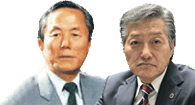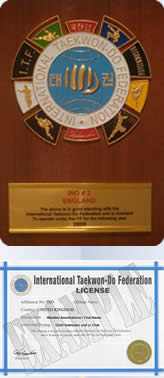Approximately, one year ago, while delivering a speech about the benefits of practicing Taekwon-Do, I was asked by someone in the audience whether I would consider speaking about Taekwon-Do and how it influenced my life. I was asked to speak for two hours. The group would be made up of forty-eight young men that had turned to alcohol and/or drugs as an answer to the stresses in their lives. Realizing that this was a road to disaster, they turned to this community group for help. The group is called ‘Caritas’. Numerous men have gone through this two year program and it appears that there is no shortage of new applicants.
At first, I was somewhat apprehensive. What could I tell them and what would I speak about for two hours. I reflect back on that first class and a year later having conducted more than 30 sessions, I still have so much more to say.
The common thread that ran through the tragic stories each of these young men face is that they just were not equipped to cope with the problems in their lives. All of them had a similar experience successful working parents with little or no time for them. As young men, they turned to their peers and not having enough self confidence and discipline they began experimenting with substances. In other cases, the parents, being hard working or well educated put demands on them and again, being unable to cope or achieve the success demanded of them, they turned to their peers for escape and relief. Unfortunately, this was the beginning of their decline.
The stories vary from situation to situation, however, it always comes down to the same problem of not having learned the tools to cope.
How can Taekwon-Do help in these situations? It can help in many ways. Taekwon-Do teaches us discipline. Discipline is the ability to listen objectively to others and with an open mind make decisions. Discipline is taught by action in Taekwon-Do. An instructor must listen to his students, he must allow them to formulate their thoughts and express them. Likewise, the instructor should challenge his students and where the student needs correction, use logic not force to teach the lesson.
The exchange of ideas between individuals is an important first step. Many of us were fortunate and had parents or teachers that challenged us in this regard. A lesson learned through logic is a lesson that will not soon be forgotten. The seeds planted in the process with positive reinforcement will give the student the first taste of independent thought and a valuable tool he will need to cope and resist the “easy way out”.
In my classes with these young men I have also learned valuable lessons about life and its challenges. Accordingly, the learning process is a two-way street that continues regardless of your age or experience. We are always learning new lessons and must take from these experiences. It is also important to share these lessons with our peers and students.
I also discovered that many of these men lacked confidence. They reacted to situations rather than looked within themselves for strength. Once again, it was easier to run away and find a quick solution in a substance rather than face one’s fears.
How do you change this or how do you prevent it from being an alternate solution in the first place?
I strongly believe that the mind, like the muscles of the body can be trained to take commands and not simply dictate orders. In other words, each of us has the ability to train a little voice inside us to tell us the difference between right and wrong and, to stop us from making foolish decisions that we will later regret.
I was asked by one of the group, how do you do that?
I think the process starts with taking the time to meditate and ask yourself a simple question every morning or night. What will I do or what have I done/learned to improve myself or make a difference in the world. If you ask these questions to yourself each day and even on a terrible day come up with a thought, you are on the road to instilling that little voice in your body.
I have heard people complain that nothing good ever happens to them or that they are unlucky. Well, all of us have problems we have to face each day. The difference is that some see their problems as insurmountable while others bear on, looking at the problem as a challenge and seeking that silver lining as a solution. I firmly believe that there is always a silver lining in each cloud that looms upon us. It is simply a question of attitude and discipline. If you work at it hard enough, you will find it!
I am reminded of a story that I use in the class about a group of frogs hopping through the forest and two falling into a deep hole. The two frogs try desperately to jump out, all the while the remaining frogs watching from above. The frogs in the hole keep jumping but it appears pointless, and they are going to die. The frogs above, start shouting at them, that their lives are over, that they should simply roll over and die. One frog does just that, the other keeps jumping as the frogs above watch and shout to just give up. The frog doesn’t, he keeps jumping and eventually gets out. The remaining frogs in shock ask the frog why he didn’t just roll over and die the way the other frog did when they told him to. The frog responds, “you told us to die? I am somewhat hard of hearing, all the while, I thought you were cheering us on!”
We all have the fight within us. The question is learning how to tap into this energy to stimulate positive growth in our lives. Many will say it is impossible, there is no solution, there is no answer, bad always happens to me. In reality, even in the bad we can learn positive lessons. It is up to each of us to teach ourselves how to make the best out of a bad situation. When it is raining, it is easy to say it’s gloomy, I am going to get wet, and I am depressed by the weather. Why not look at the gray wet day as the replenishment of moisture back to mother earth? The life giving cycle of renewal.
Why not make it your opportunity to renew yourself and reflect on how you can improve your life?
Change can only begin from inside you and by asking yourself the simple question, I start with each day, you can start to make that change from within and the little voice will be born. With some nurturing, that voice will start helping you in ways you could not previously imagine.
Your attitude is the first and most important aspect of your life that you have to change.
August 23rd 2007


 Log In
Log In
 Write an Article
Write an Article


 Back
Back


